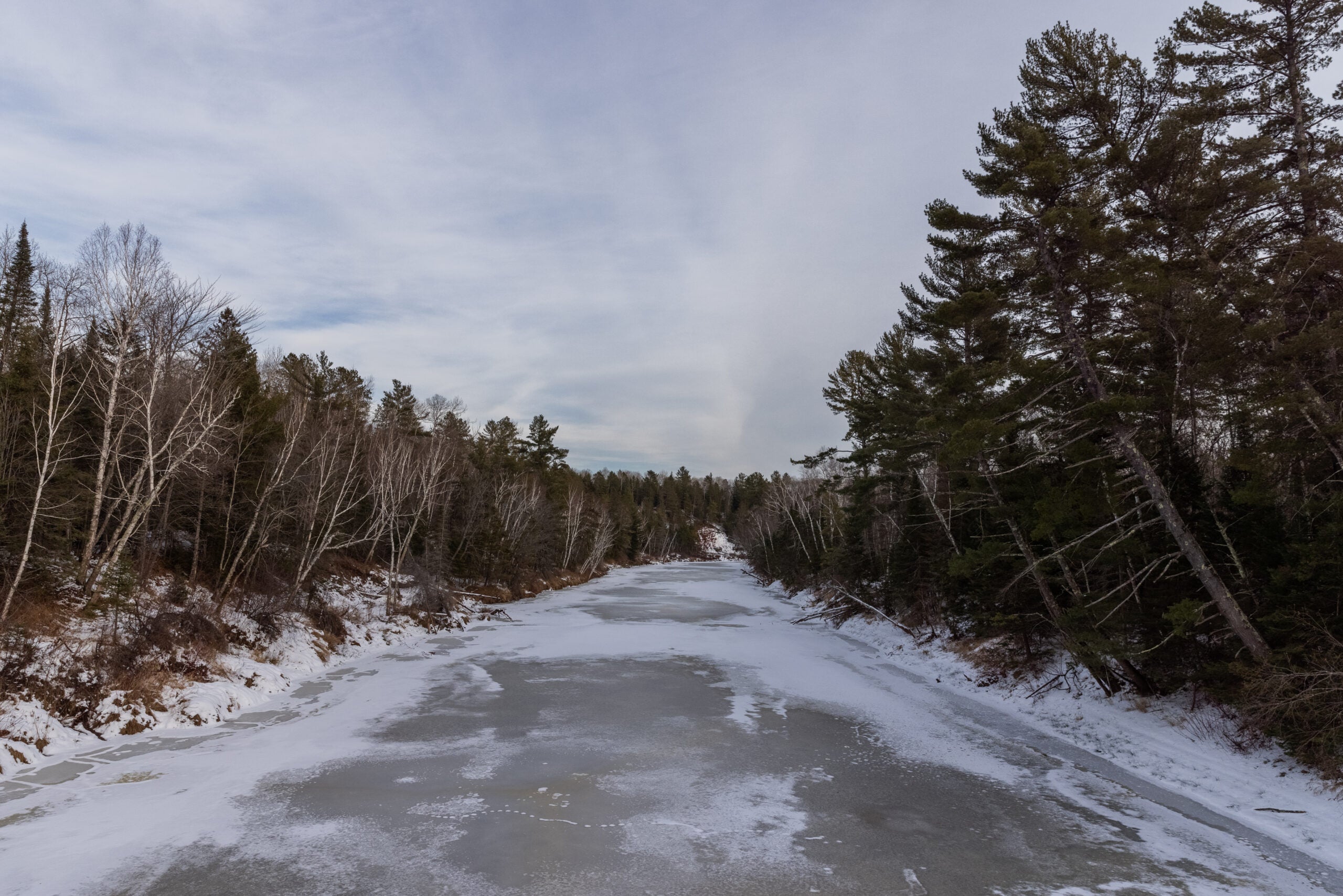Earthjustice goes to court for our planet.
We’re here because the earth needs a good lawyer.
Court Orders Shutdown of Imperiled Line 5 Pipeline Trespassing on Wisconsin Tribal Land
This page was published 2 years ago. Find the latest on Earthjustice’s work.
The situation: A federal court ordered a segment of the Line 5 oil pipeline that is trespassing on the reservation of a Wisconsin tribe to be shut down within three years.
Erosion of the Bad River riverbank threatens to expose the pipeline to the powerful river current, risking an oil leak and imminent ecological and human health disaster. This spring, the Bad River Band of Lake Superior Chippewa filed a motion for an emergency shutdown and purge of Line 5 before any more erosion occurs.
Why it matters: The Band has long relied on fishing, wild rice, medicines, and other plants and animals from the Bad River and Lake Superior. A rupture and oil leak would pose a catastrophic threat to their community, the river, and the Great Lakes.
Line 5 is risking an environmental and human health disaster.
- Court ordered shutdown: A federal court agreed that the Line 5 pipeline poses a public nuisance to the Bad River and Lake Superior. It’s ordered the Canadian oil giant Enbridge to shut down and decommission a segment of its Line 5 pipeline that trespasses on the Band’s reservation within three years.
- Potential rupture: Line 5 is designed to be underground supported by soil, not suspended in the rushing waters of a flooding river. Collisions with uprooted trees and other debris could easily cause a breach, or the weight of the oil in the pipeline could cause a guillotine rupture.
- Great Lakes impact: A full-bore rupture of Line 5 at the Bad River meander would result in nearly 22,000 barrels (922,908 gallons) of oil entering the Bad River, just 16 miles upstream of Lake Superior.
Enbridge, the Canadian oil company behind Line 5, has a terrible oil spill record.
- The fight isn’t over: Enbridge is expected to fight the court’s order, but its proposed mitigation measures are false, environmentally harmful solutions that prolong the trespass onto the Band’s territory.
- A false solution: Enbridge wants to re-route Line 5 by building 41 miles of replacement pipeline around the reservation, but the proposal doesn’t protect the Band or the Great Lakes from the threat of Line 5. The proposed re-route would cross the same sensitive watershed and the Band’s treaty-protected territory, with substantial and unacceptable impacts on the environment.
- Tainted record: Enbridge was responsible for one of the largest inland oil spills in U.S. history: the Line 6B spill in 2010 that released 20,080 barrels of crude oil into Talmage Creek and the Kalamazoo River.
The three-year shutdown timeline leaves the Bad River vulnerable to catastrophe.
- Imperfect plan: The court ordered Enbridge to adopt a conservative shutdown plan that allows Line 5 to operate for up to three more years.
- Increasing risk: The river is less than 15 feet from the pipeline at four locations, and only 11 feet of bank remains in one spot.
- Valued waters: The Bad River flows through the reservation and into some of the most valuable wetlands in the world at the Lake Superior coastline.
- What we’re fighting for: The watershed’s uniquely healthy waters support the health of springtime fish migrations, wild rice beds, Lake Superior fisheries, and flood protection for local communities.
Shutting down Line 5 now avoids economic catastrophe.
- Minimal gas impact: While shutting down Line 5 would briefly and minimally impact gas prices, a rupture in the Bad River would require millions in cleanup costs and devastate local tourism and fishing in addition to raising gas prices.
- Weighing costs: Enbridge’s own experts predict that a shutdown of Line 5 would cause gasoline prices to rise by less than 1 cent per gallon in Michigan and Wisconsin. In comparison, the cleanup and remediation from a full-bore oil spill could amount to over a billion dollars.
- Beyond money: The cost levied on sick communities, depressed property values, and devastated local fishing and tourism dollars could last for years afterwards.
